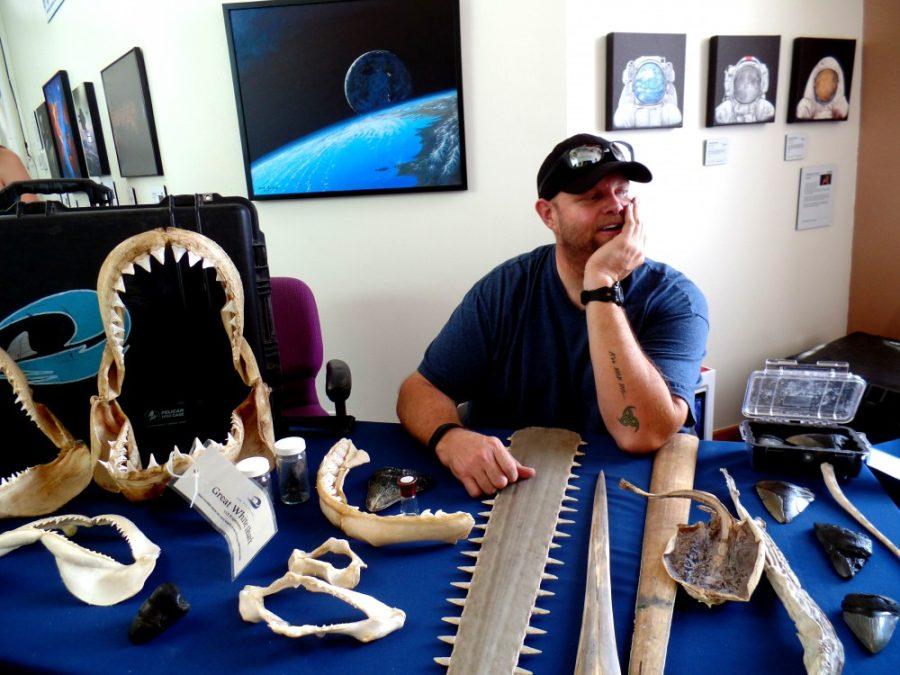Imagine a nature hike in the Sonoran Desert. There is a cluster of alligator junipers providing shade for two sleeping javelinas and, a little farther away, a few deer dart across the trail. At the end of the trail there is a watering hole with a coyote and its pup. A pygmy owl rests in a lone saguaro.
Now imagine coming back five decades later and finding nothing but one skinny javelina, and almost all of the native animals gone.
This is what is happening in the ocean, an even bigger ecosystem that comprises 99 percent of Earth’s habitable space. A 2003 study in Nature found that humans have depleted 90 percent of large fish stocks in global oceans during the past 50 years.
These changes may seem far off for desert dwellers, but the oceans provide half of the world’s oxygen and take up 50 percent of all carbon emissions. What happens to the ocean does not stay masked beneath the waves.
Biosphere 2 hosted an Ocean Appreciation Day on Saturday with a special focus on the importance of the sea to Tucsonans. Local expert Marilyn Malone talked about her work in the Gulf of California, representatives from UA’s Marine Awareness and Conservation Society set up interactive stations for guests, students from ecology 360 presented short videos on sea level rises and ocean acidification, and Biosphere 2 gave special tours of their ocean environment.
The Fin Foundation, a local nonprofit that teaches marine science to classrooms throughout the Southwest, set up a display featuring jaws of great white sharks, shells of giant snails and even a walrus tusk.
Founder and CEO of the Fin Foundation, Shaun Pipes, said there is a disconnect between the importance of the ocean and the desert. The ocean gives us the air we breathe, the climate we need to survive and the food we eat, according to Pipes.
“We sometimes forget about it, but the ocean does so much for us,” Pipes said.
Particularly large predators, like sharks and tuna, are disappearing from the oceans. Pipes said predators keep marine populations in balance. Without them other species could grow out of control.
Overfishing is the number one cause for the shocking losses witnessed over the past half century.
Exploitative marine fisheries run on less-than-sound science, nonselective fishing technologies, extensive governmental subsidies that lead to overcapacity, high catch rates and nontransparent fishing policies. These are all components of the decline. Fish are taken from the oceans at a faster rate than they can reproduce. We have built a fishing industry capable of fishing the global ocean four times over.
The 1.2 billion people that depend on the sea for their livelihoods and protein would be hit first, but the ripples would affect everyone, regardless of whether they live in a desert or along a coast.
Through buying sustainably caught seafood, learning about marine conservation through local events like the one at Biosphere 2 and supporting fishery reform, Arizonans can make a difference.
Follow Julianna Renzi on Twitter.









